The protagonist of this ultra-bleak horror game fights with sadness and gets upgrades by having an avoidant personality
Unholy is as sullen as it is janky.
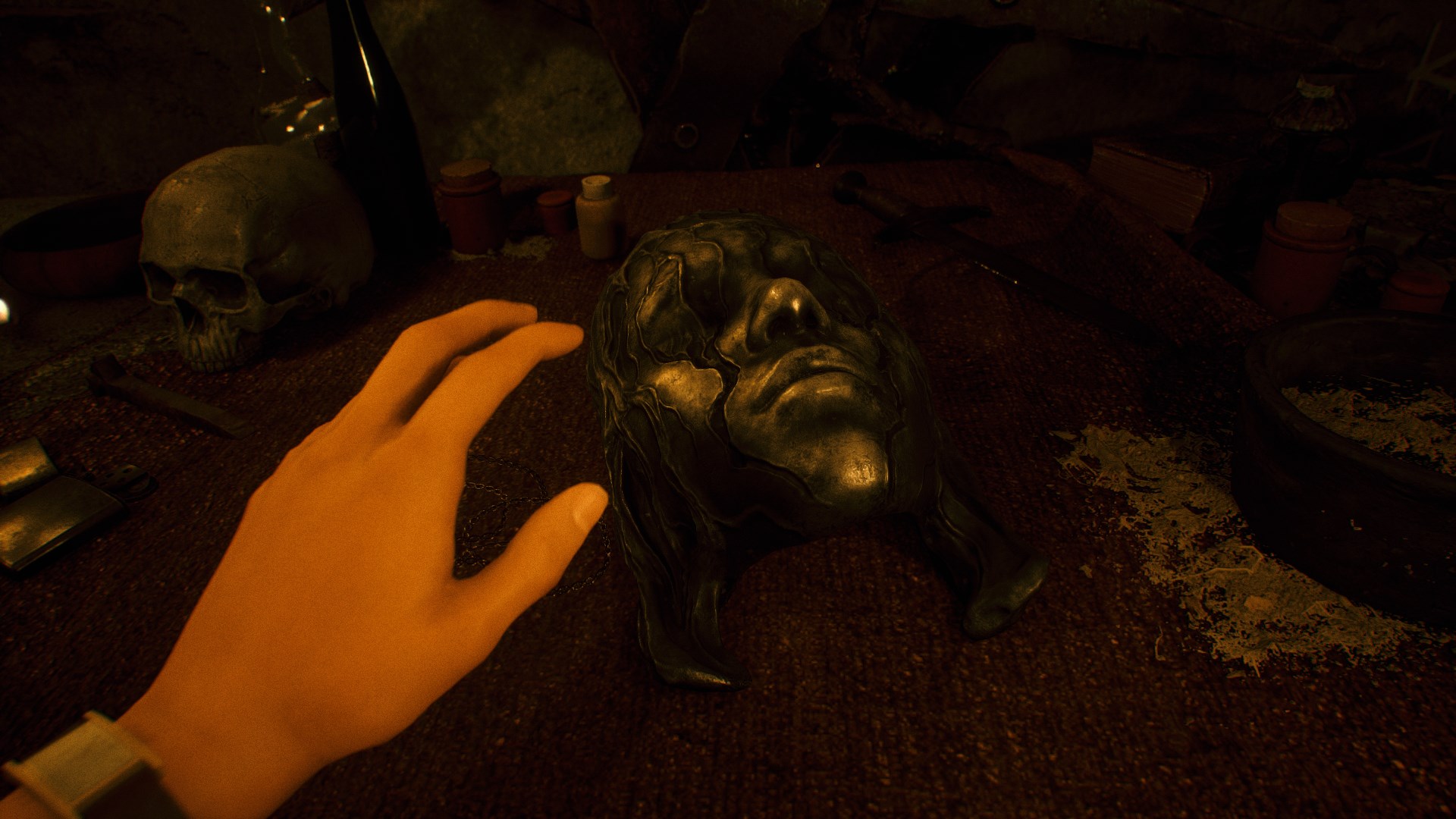
You boot up Unholy and within the first five minutes your kid is kidnapped, sacrificed, and his soul is sent to the afterlife to be tortured eternally. It's a bad situation, but you can totally come back from this: his soul can be recovered by completing a linear series of stealth puzzles.
Scorn-like Unholy stars Dorothae, who aims to learn and grow from this unexpected experience with ritual sacrifice by stealing her kid Gabriel back from hell. She's got some other baggage too, notably a pathological aversion to concluding personal matters. Bailing on her job at the evil cult sisterhood got her into all this, and to get out of it, she's going to burn away the unopened letters from her dead parents that she's put off reading in exchange for powerful occult abilities like "crouch slide". Every hardship is an opportunity for growth, right?
It's busted in a lot of ways, but Unholy has a weird vibe that I dig—the kind where you'll end up doing match-three puzzles in your recently deceased dad's apartment looking for your kid's last locks of hair to make a potion.
That apartment, by the way, is one of my favorite environments in recent memory. Your dad's lavishly mid-century-furnished two bedroom Soviet bloc housing unit is littered with tiny personal touches, each item providing context for Doeothae's own trauma, establishing her as an incomplete person. There's even a turntable where you can pick up and play weird old post-jazz records. That's another highlight—the interactables. A little bit later on you get a mask that grants you Arkham detective vision, but it has to be repaired in this ornate, literally Byzantine forge that has you melting down shattered masks and pouring the liquid metal into the new mold. It's a catatonically dull puzzle, but if there's two things Unholy truly excels at, it's stunning Eastern bloc apartment renderings and weird contraptions.
Barring those two genuine highlights, there wasn't much else to get down with in Unholy. The afterlife our kid gets taken to is a bland early modern European city overgrown with evil Warhammer Chaos tentacles. The Magistrate of the Eternal City (who presumably has the kid) is losing against these entropic vines, badly, and they've cracked down on the afterlife's burroughs with some of gaming's dumbest cops. In an encounter with the Orthodox Five-O early on, I had this one cop do a total figure eight around the room on loop, cycling the same "I'm gonna find you" dialogue. The puzzle I had to complete while hiding was dead simple as well, correlating numbers to letters of the alphabet on a padlock.
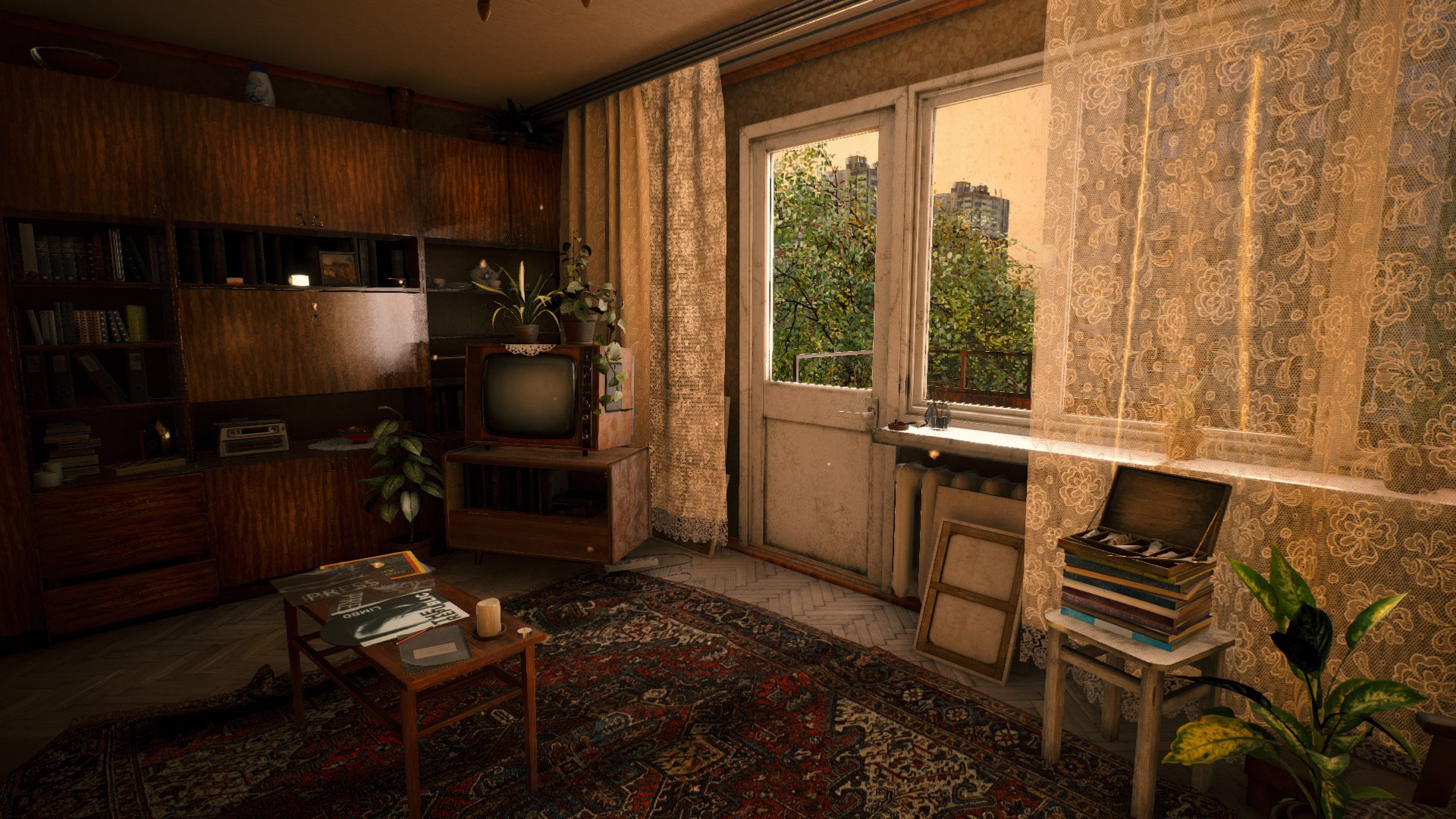
There's not a shred of optimism or levity to be found in Unholy's opening chapters.
There is some combat, but it's just zombies walking in pre-set patterns, literally bumping into explosive barrels all but begging for you to sling blue energy at them. That blue energy, though, is actually pretty cool—it's the electrifying, crystalized essence of the sadness, shock, and fear that builds in someone in the moments before their death, and you get more of it by stealing those people's hearts. I found this wall in chapter three where a group of innocents got executed by a firing squad, implied to be the state harvesting fear as a resource from the general populace.
Playing Unholy is smoking Eurojank strain in lethal quantities: It's utterly infested with bugs, stricken with UX and environment typos, and its subtitles occasionally contain glaring deviations from the script. Movement is clunky, tied to a stepping forward animation that makes it feel like you're walking with a cane, and picking up items often takes several attempts to register. All the walk animations look like when you move the third person camera all the way down in Morrowind to make your guy do a pimp walk. There's a jump button that has very little function beyond making Dorothae do a janky hop forward and bug out over top of the collision mesh of the static debris littering the floor.
Keep up to date with the most important stories and the best deals, as picked by the PC Gamer team.
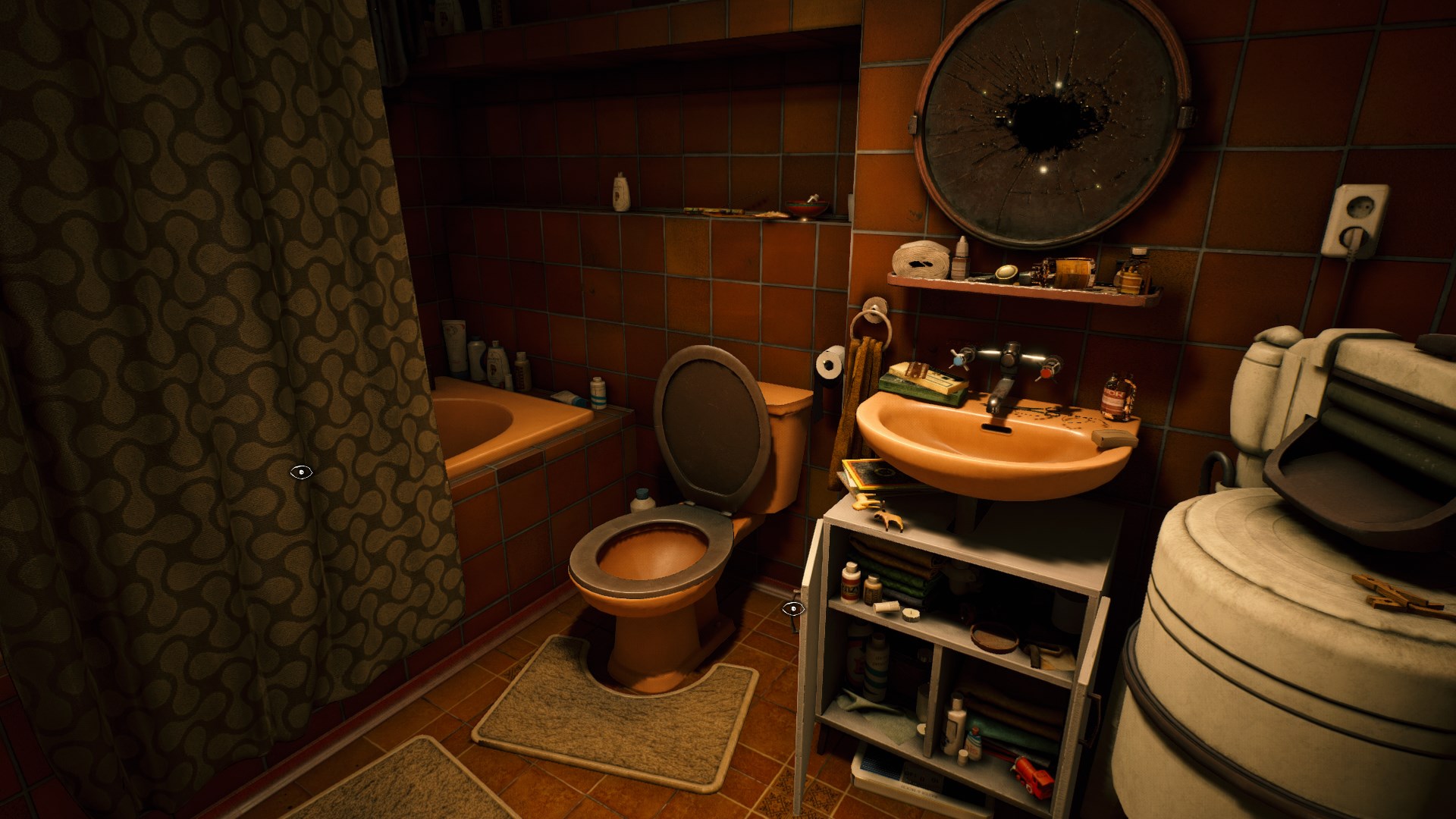
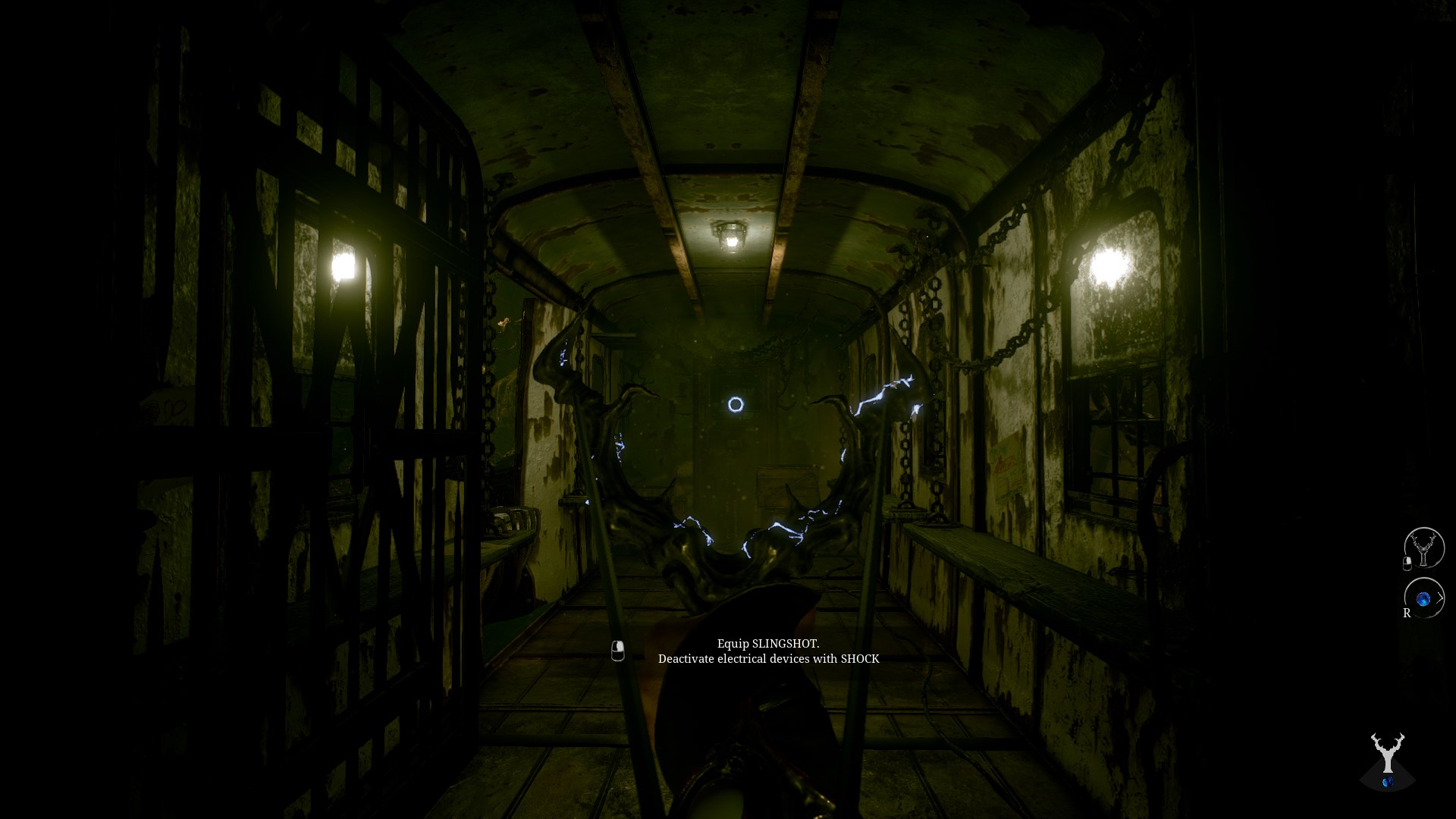
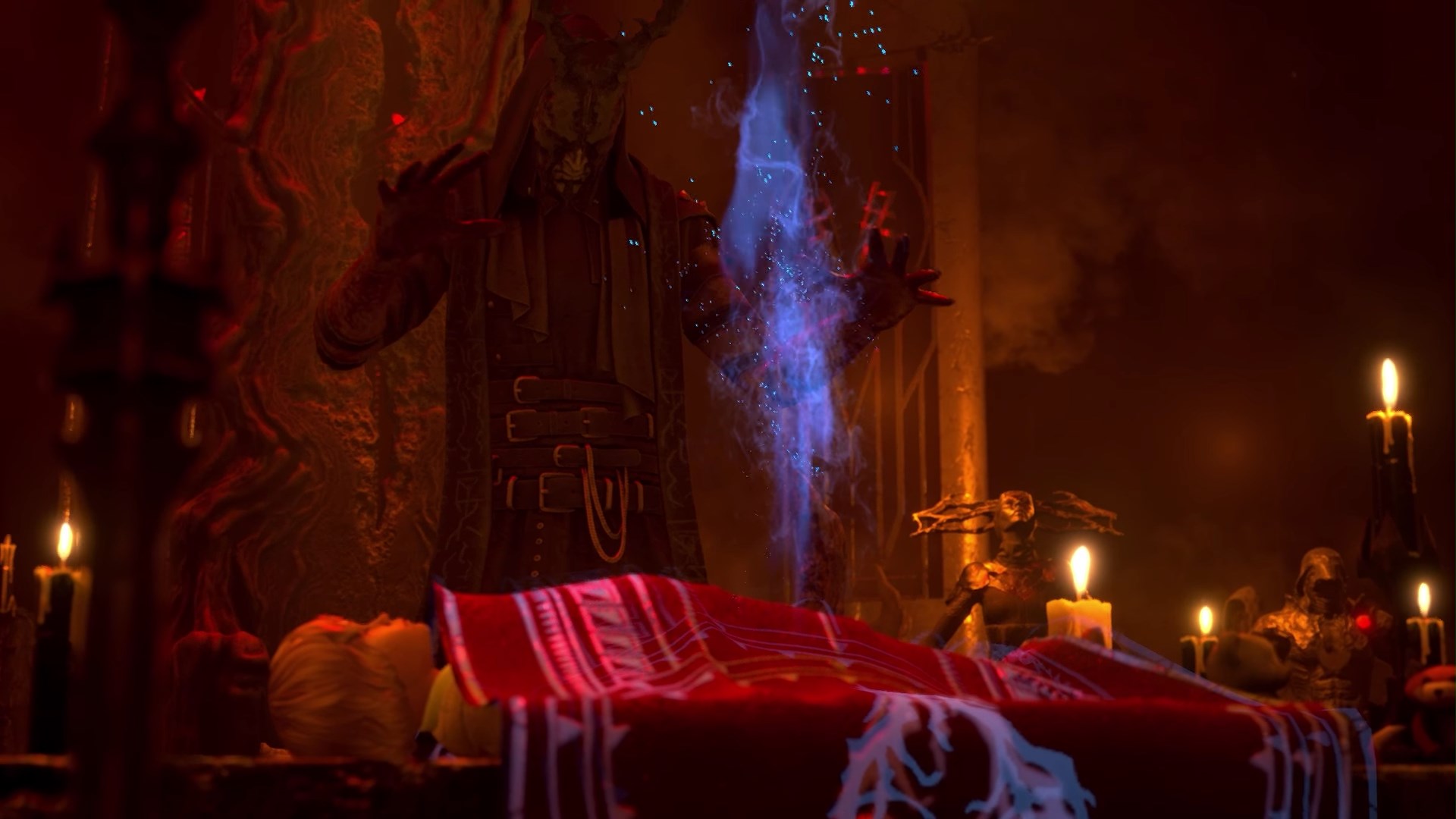
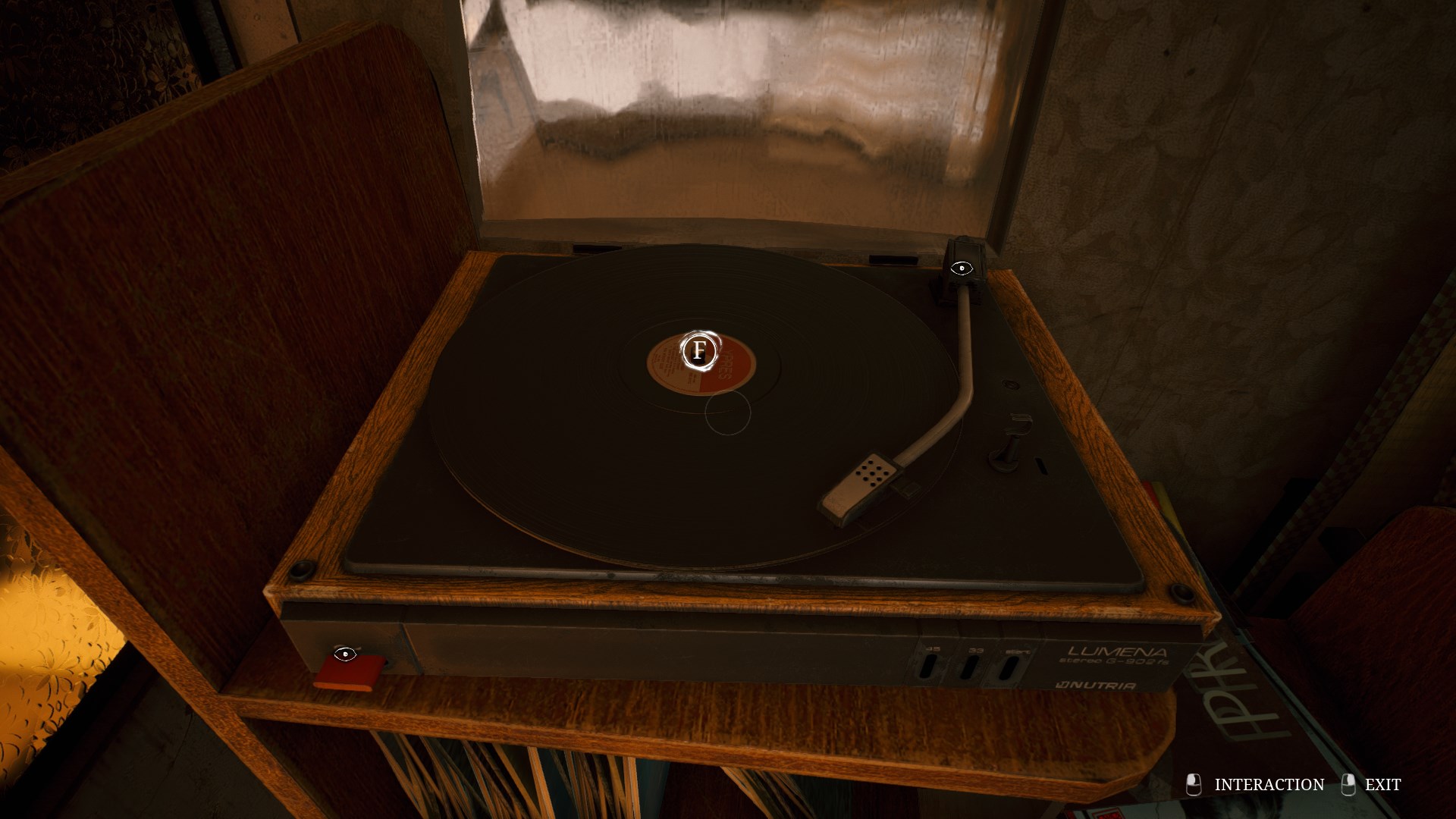
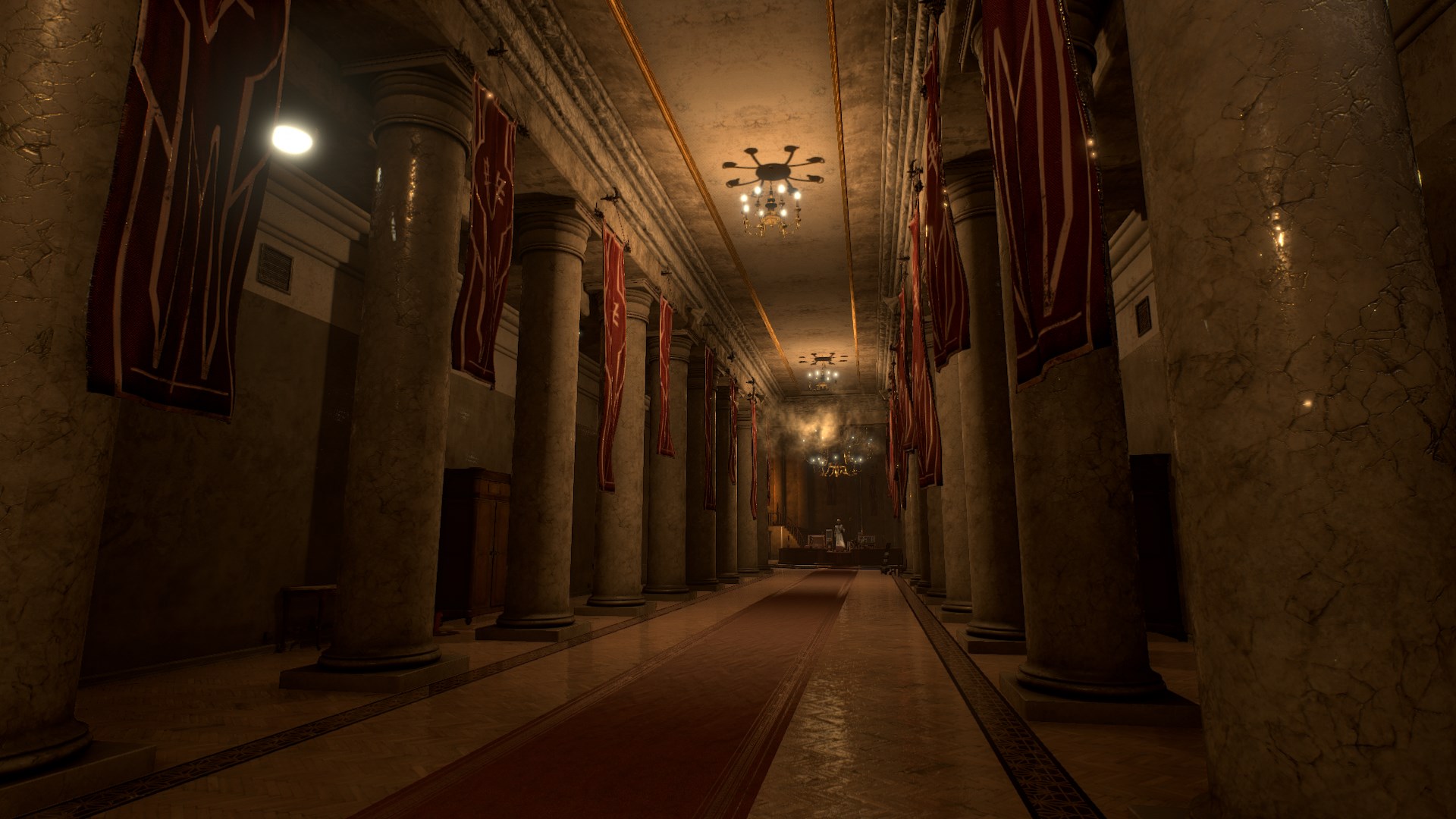
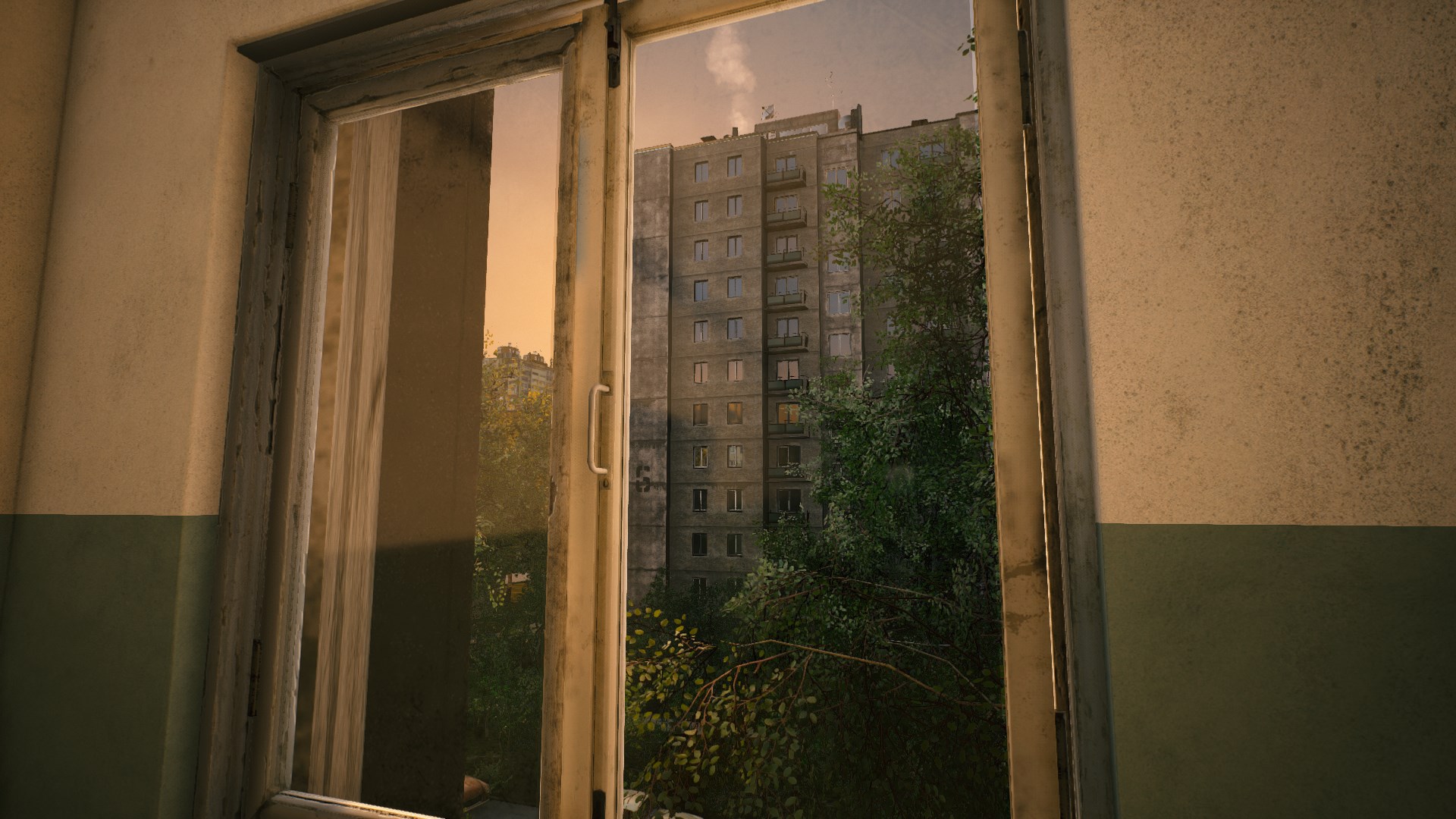
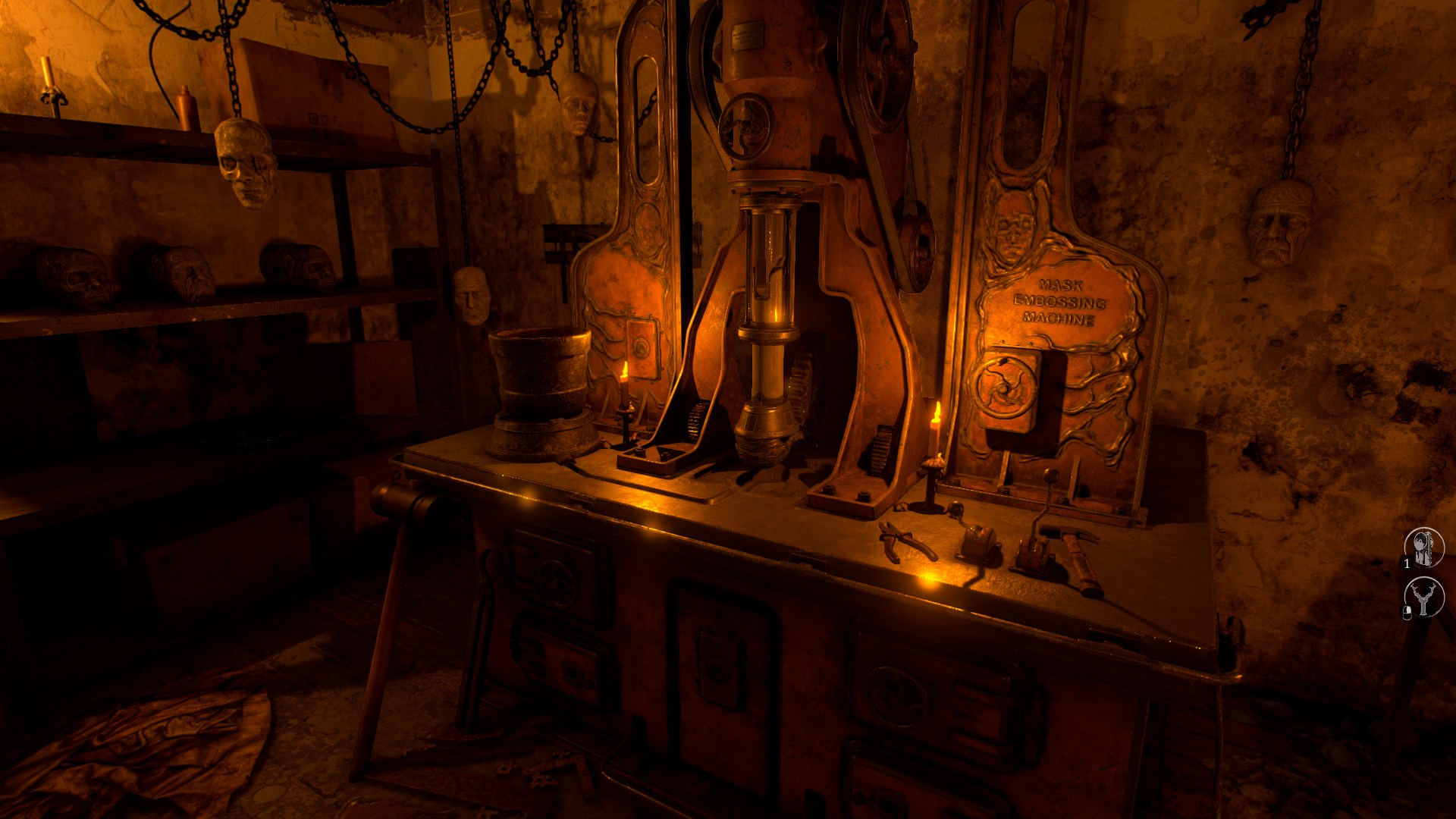
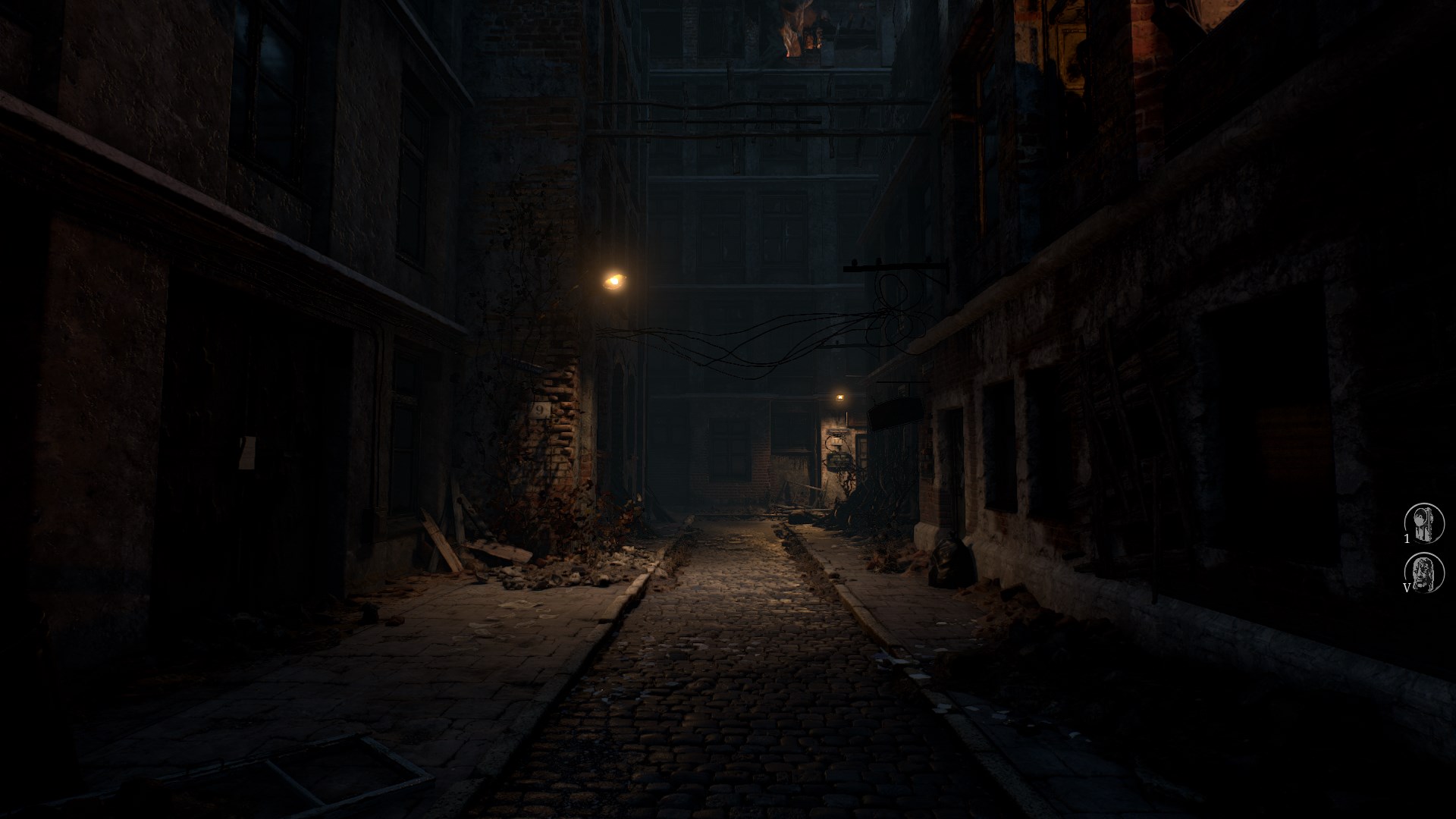
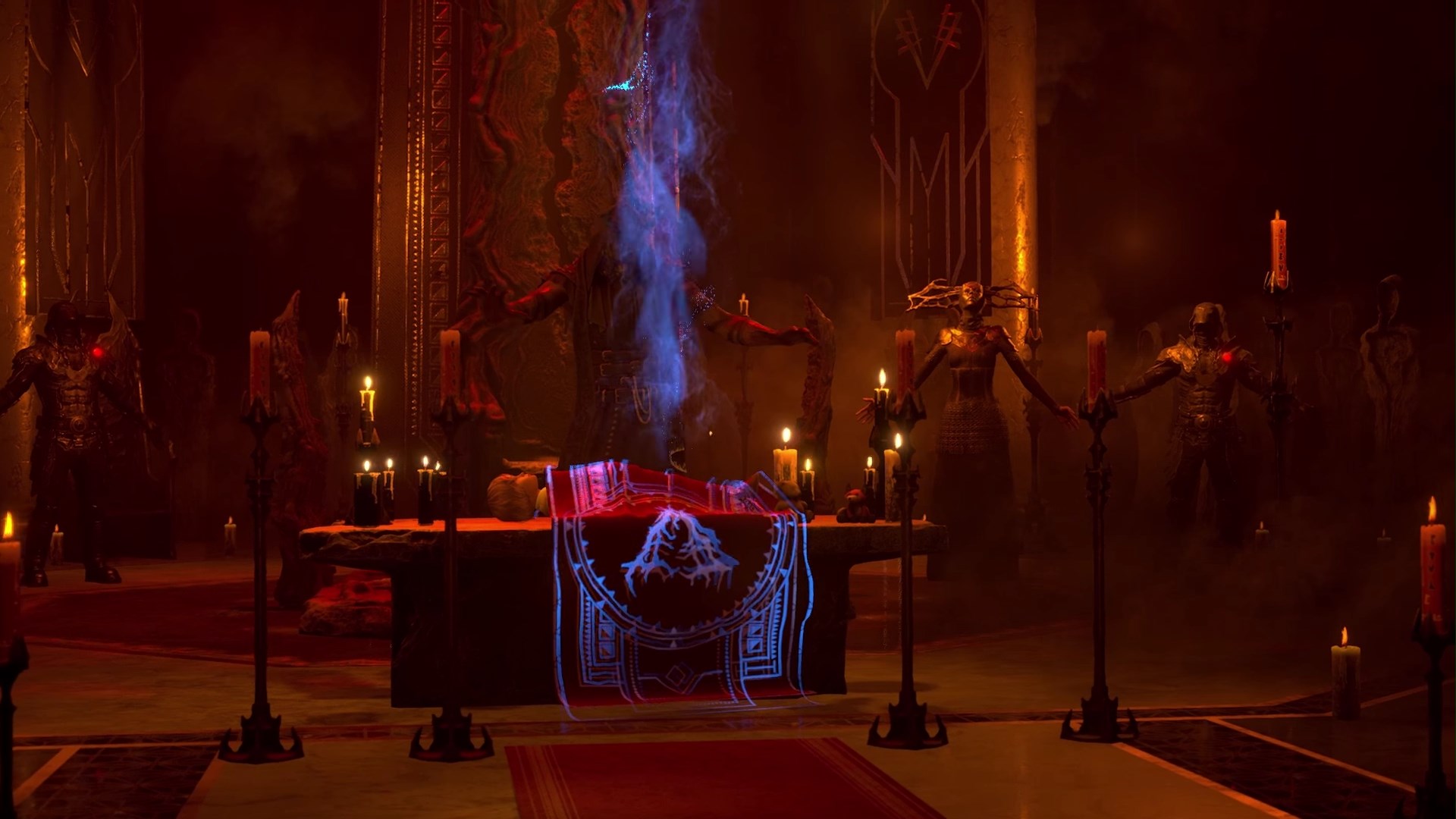
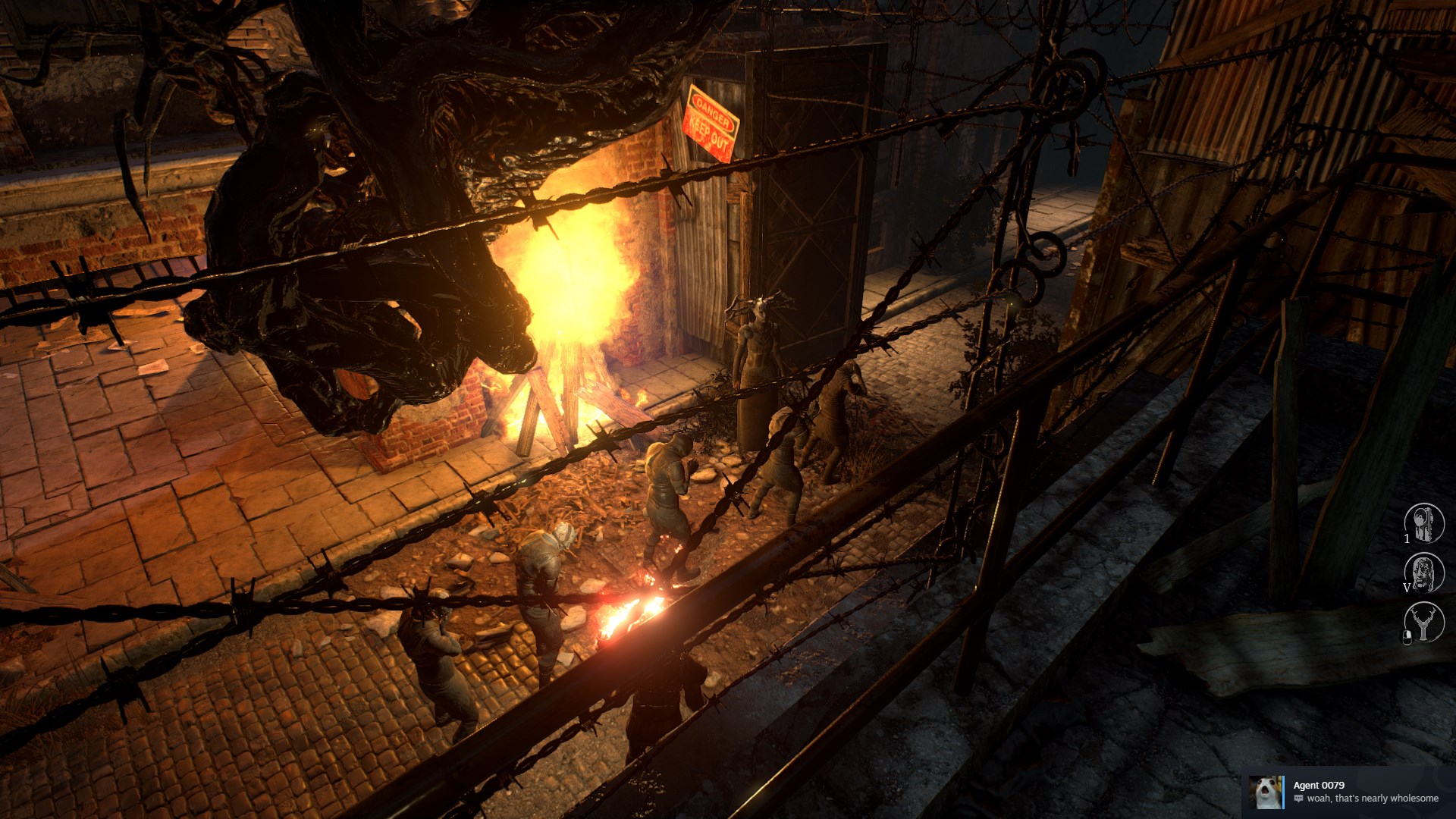
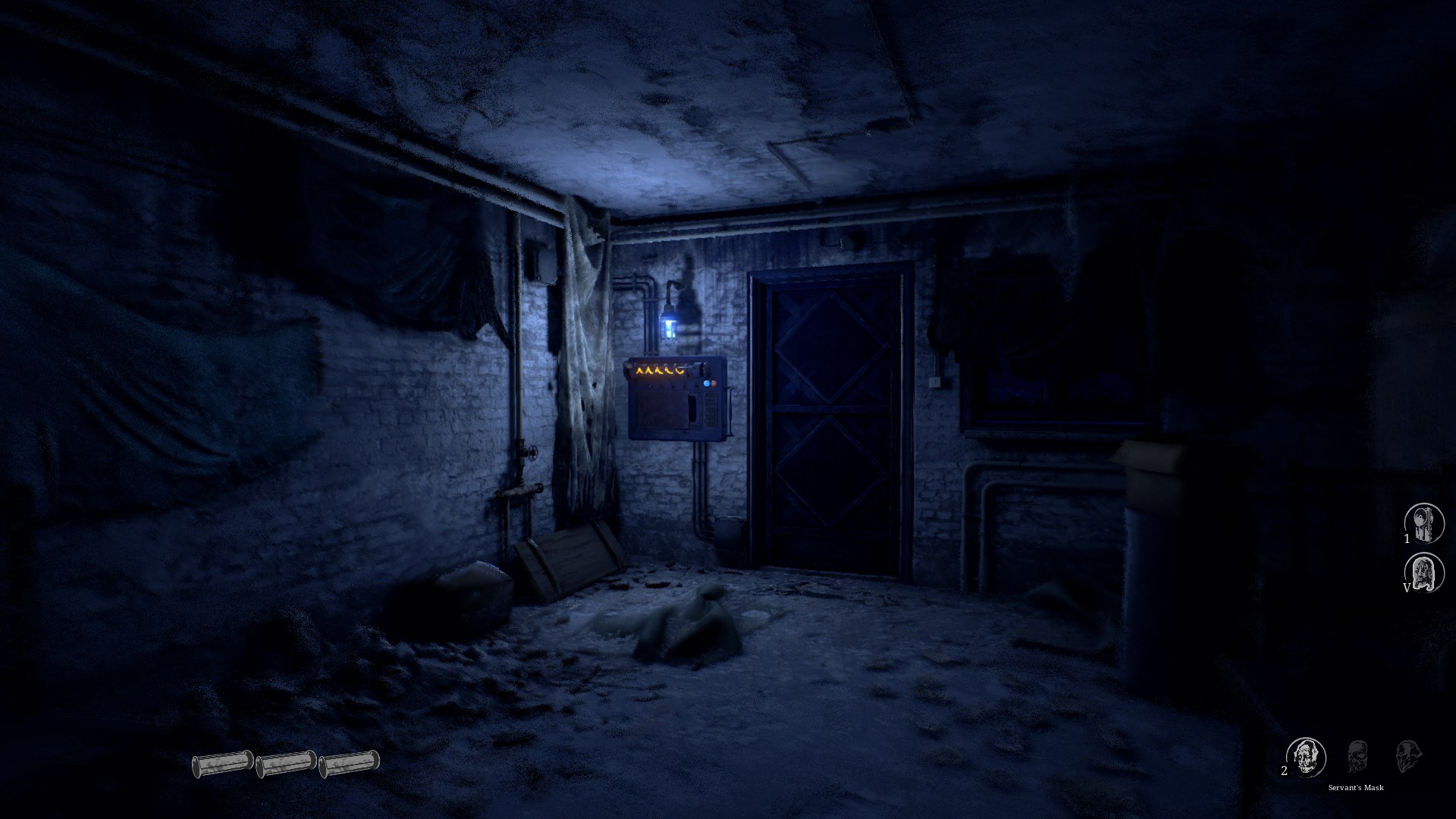
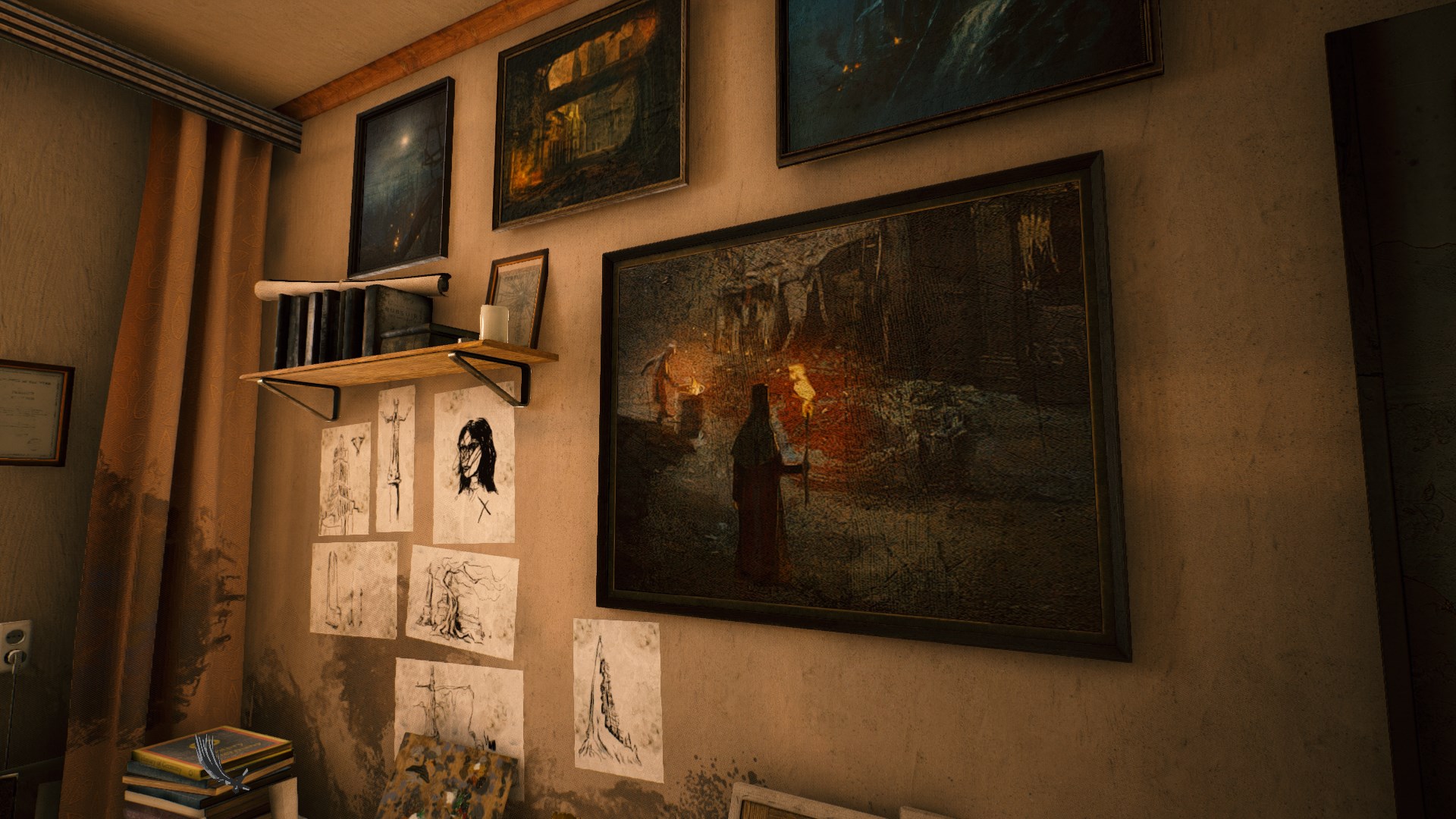
Loading into a large area causes the game to crumble under all the unoptimized foliage and lighting effects. Sometimes the buttons you need to press to open doors just don't open and you need to reload a save. It's just not a smooth operation.
So Unholy's isolated elements never really rise above "passable", but put them all together and there is something to this stealth game that I found myself enjoying. I wasn't getting on with every part of the story, but tying the power-ups to Dorothae's self-destructive avoidance tendencies got a real "oof" out of me. Same with the slingshot ammo: there's these occasionally powerful, evocative ideas and themes that just appear and disappear out of nowhere. It's incredibly bleak, too. There's not a shred of optimism or levity to be found in Unholy's opening chapters. It was the same feeling I got reading depressing Russian novels in freshman English class, which is a mood I don't get to experience in games all too often.
Even in the first few hours though, these flashes of conceptual brilliance were still too few and far between for me to recommend Unholy to anyone other than the extremely patient or extremely depressive. If you are that ruinous sad sack, there's something neat here, buried under all the bugs and jank.
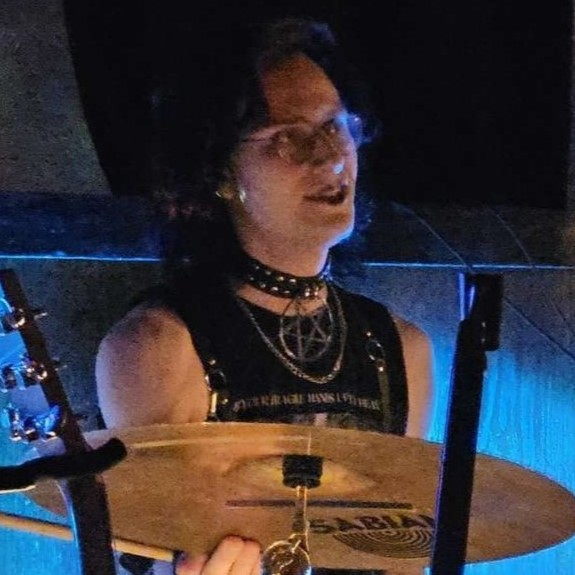
Nova Smith is a freelance writer based out of Alberta, Canada. Nova's grab bag of non-gaming interests and passions includes Japanese mecha anime, miniature painting, as well as history, literature, and classical music. Nova also moonlights as a bureaucrat and amateur historian.

